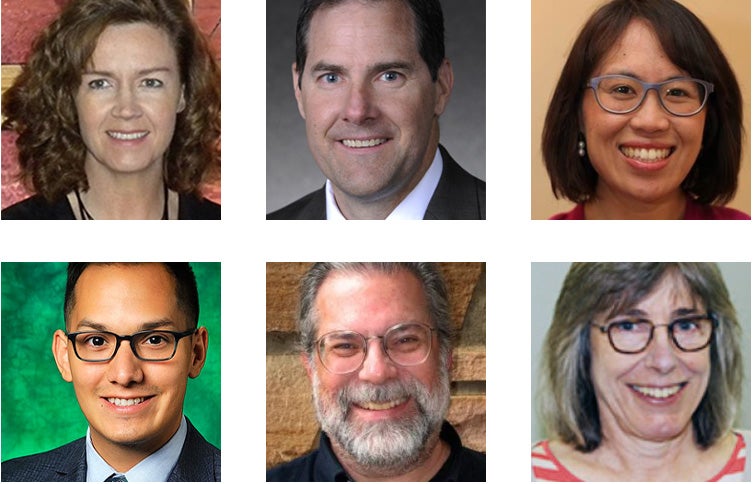Faculty Council Committee Corner: (Dis)ability and Access

Editor’s note: This is part of an ongoing CU Connections series in which the Faculty Council highlights each of its committees and their efforts. See past installments here.
After a decade-long hiatus, the Faculty Council Disability Committee was reconstituted as the Faculty Council (Dis)ability and Access Committee. As part of its charge, adopted in May 2021, the (Dis)ability and Access Committee considers concerns of faculty with disabilities, including:
- Assessing and promoting the cultural climate of the university as it pertains to opportunities of faculty with disabilities for academic advancement, productivity and appropriate compensation;
- Making recommendations and promoting inclusive pedagogy for creating an academic environment that fosters academic success;
- Working to assure fairness in the recruitment and retention of faculty with disabilities;
- Developing support networks and recommending policy to address the needs of faculty with disabilities;
- Working as a liaison with other units/centers/committees/task forces to transform pedagogy to further universal design and accessibility in the system;
- Promoting movement from a medical vision to a socially inclusive vision of accessibility as part of the DEI mission of the university;
- Representing the concerns of faculty who identify as having a disability, whether they choose to disclose or not, as well as colleagues who support the disabled community.
Much of our activity during AY 2021-2022 has been gathering and reviewing materials to determine what the committee could best do to serve the university. As a result of this exploratory phase, our committee has established several initiatives and areas of focus aligned with our committee charge.
Our first priority is to better identify the size and needs of the disabled CU community. To this end, we are reviewing the results of the Campus and Workplace Climate (CWC) Survey, launched by the university in Fall 2021, and we are working on ways of anonymously identifying prevalence of disability among members of the CU system in the same manner as we collect other demographic information in surveys.
Our next priority is to improve availability and visibility of methods for reporting access issues, as well as to create a process to attain and annually review the efficacy and speed with which reported access issues are addressed.
Yet another priority is to identify ways to make our university more accessible by exploring access standards for university communications and events (which would vary based on event size, speaker, etc.).
Lastly, we will also take a closer look at CWC survey results to help to identify further areas that need to be addressed.
The (Dis)ability and Access Committee welcomes input and questions from faculty. Please reach out to one of our members to learn more about our goals and activities, or if you are interested in serving. We currently seek additional members from CU Boulder (2), CU Colorado Springs (1), CU Anschutz (1) and CU Denver (1).
Heather Albanesi (halbanes@uccs.edu), Co-Chair | CU Colorado Springs, College of Letters, Arts & Sciences
Colleen Donnelly (Colleen.Donnelly@ucdenver.edu), Co-Chair | CU Denver, College of Liberal Arts & Sciences
Jim Sandstrum (jim.sandstrum@ucdenver.edu)| CU Anschutz, School of Medicine
Alicia Wong (alicia.wong@cuanschutz.edu)| CU Anschutz, School of Medicine
Adam Norris (adam@colorado.edu)| CU Boulder, College of Arts & Sciences
Jose Tapia-Fuselier (jtapiafu@uccs.edu)| CU Colorado Springs, College of Education
Lorraine Evans (lorrie.evans@ucdenver.edu) | CU Denver, Auraria Library

